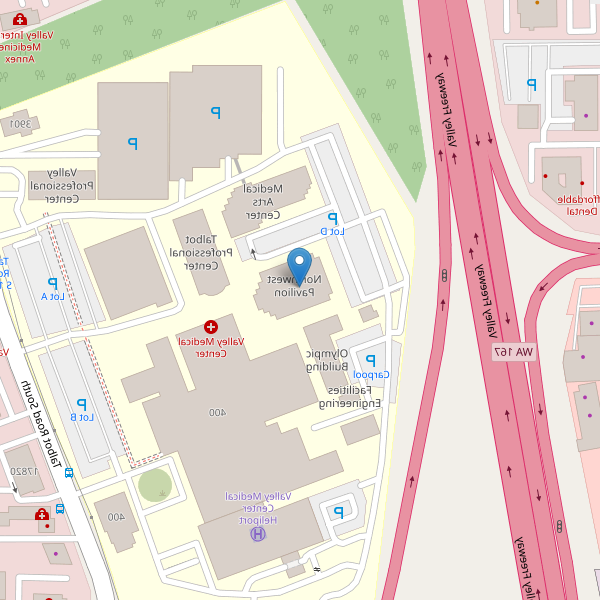The Cancer Center at Valley Medical Center opens to our first patients on Feb. 3, 2025!
Learn more about the services offered in the new space.
Multiple Sclerosis

MS Care at Valley
Multiple Sclerosis (MS) is a chronic disease where the immune system, which normally fights infection, attacks the central nervous system, which includes the brain, spinal cord, and optic nerves instead. Even more specifically, it attacks a substance called myelin, which is an electrical sheathing around nerve cells that help nerve cells conduct signals.
Symptoms of multiple sclerosis
MS is an unpredictable disease that affects people differently, with some having mild symptoms and others having more severe signs of the disease. Some symptoms you may experience include:
- Vision changes (blurred vision or pain)
- Changes in sensation/feeling
- Difficulty walking or imbalance
- Bladder and bowel issues
- Muscle weakness
- Fatigue
- Depression
- Memory problems
Diagnosis
We utilize a variety of tools to ensure we make the correct diagnosis. When you are seen in our clinic, your provider may perform or order the following tests:
- Neurologic exam, testing vision, hearing, strength, walking, and balance
- MRI
- Blood tests
- Lumbar puncture (spinal tap) to look for abnormalities in the cerebrospinal fluid
- Nerve conduction tests
Treatment
While there is no cure for MS, there are things you can do to help change the course of the disease, treat flare-ups, manage symptoms, and improve function and mobility. Our team will work with you to create a treatment plan. Please keep in mind that treatment plans may vary widely, depending on how your symptoms manifest. Your provider may discuss the following options with you during your healthcare journey:
- Medications to treat inflammation
- Lifestyle changes, such as changes in diet, or implementing or adjusting a regular exercise schedule
- Rehabilitation, including physical or occupational therapy to improve mobility
- Emotional support counseling to help you manage the mental impact of your disease
At Valley, we're fortunate to have an MS fellowship-trained neurologist, Sargon Bet-Shlimon, MD, on our neurology team. Dr. Bet-Shlimon supports patients through ongoing management and treatment of MS symptoms. In addition to his specialized MS training, Dr. Bet-Shlimon is a board-certified neurologist who specializes in neuroimmunology.
DocTalks and Other Resources
In this video, Dr. Bet-Shlimon answers the following questions at the noted times:
- (0:17) What is multiple sclerosis (MS)?
- (1:01) What causes MS?
- (1:20) What are the signs and symptoms of MS?
- (2:37) How do you diagnose MS?
- (3:22) How is MS treated? Is there a cure?
- (3:55) I've heard MS is more prevalent in the Pacific Northwest, why is that?
- (4:43) If someone has MS, how will it impact their life?
- (5:23) What is an MS flare? How long does it last?
- (6:55) What lifestyle changes should you make if you're diagnosed with MS?
- (8:34) If your friend or family member has MS, how can you support them?
In this video, Dr. Bet-Shlimon answers the following questions:
- [0:24] What diet should follow if you have MS?
- [1:55] What kind of exercise should you do if you have MS?
- [2:48] Are there natural or holistic remedies that can help treat MS?
- [3:27] Is MS contagious or hereditary?
- [4:03] If someone has MS, is it going to get worse?
- [4:33] How do drug treatments help MS and is there a cure?
- [5:13] What is the life expectancy for someone who has MS?
- [5:56] Is it okay for someone with MS to get pregnant? Does it affect fertility?
- [6:30] Is there a connection with having MS and other autoimmune conditions?


